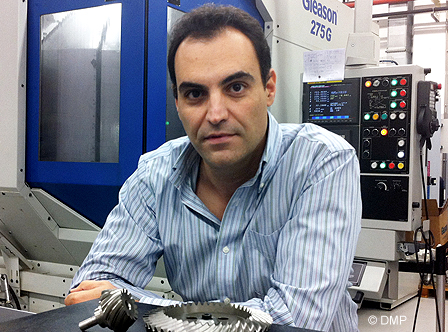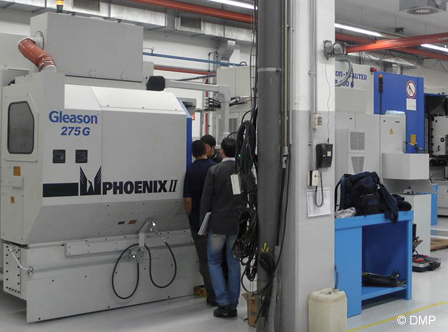INTERVIEW



Jose Amores is the head of innovation and development at EGILE CORPORATION XXI, the group to which DMP (Desarrollos Mecánicos de precisión) belongs; DMP is a company located in Gipuzkoa devoted mainly to the integral manufacturing of high-precision mechanical components for the aviation sector. In this interview, Amores tells newtek about the importance of Tribology in the design phase of an aircraft engine.
1.- What are the main advantages that tribological analysis needs to take into consideration during the design phase of a product or piece of equipment?
The main advantage is that in this way we can consider the whole life cycle of the product during its design phase, and in the case of an aircraft engine and associated systems this life cycle can be as long as 25 years.
The development of a critical aircraft system can take more than 10 years including the industrial-scale phase, but the first year is the critical one. That is when the product is specified in conceptual terms, Preliminary Design Review – PDR.
Once this milestone has been passed, there is no turning back; if there is anything you have failed to take into consideration properly you could find that in 10 years’ time your product isn’t selling.
So as tribological behaviour affects our systems in functional terms, it is a factor that inevitably has to be taken into consideration during the initial development phases.
2.- DMP develops gears for the aviation sector. What role can Tribology play in improving the efficiency of aircraft engines and in cutting fuel consumption and gas emissions?
Future engines are based on new configurations to make them more efficient and more environmentally-friendly. Strangely enough, these engines, contra-rotating open rotor ones (Rolls-Royce, Snecma) and Geared Turbofan ones (MTU, Pratt & Whitney), have incorporated an epicycloidal reducer as a key system.
And then helicopter engine manufacturers are also making a great effort to improve the efficiency of their current turboshafts, which is the case of Turbomeca, a customer of DMP. Let us not forget, either, that there are other transmission systems external to the engine and which are critical in helicopters: the Main Gear Box, the Propeller Gear Box and the Tail Rotor Gear Box.
So these systems are set to play an even more important role in the future. In fact, engine manufacturers are already calling on us to align ourselves with this trend, and the aviation systems we develop have to be lighter, quieter and more efficient. The efficiency is mainly determined by the loss of power, which in turn is determined by the friction between the gears. This is where tribology can make a significant contribution.
3.- How important is wear and corrosion control in aircraft components?
Engine manufacturers no longer sell engines but hours of service. This implies that being capable of guaranteeing reliability and durability for your system is a competitive advantage in this new business model.
The cost of maintenance can be more than 20% of the cost per hour in the air, so it is a cost that needs to be managed and reduced. A new concept in predictive maintenance, “Health and Usage Monitoring”, aims to anticipate any breakdown and prolong the use of key components; gear, shafts and roller bearings of a reducer and thus provide the airline with economic benefits. To do this, it is crucial to control the wear of these components, either by means of lubricant analysis (in case there is an excess of metallic particles due to wear) or changes in the vibration and/or noise of the reducer.
IK4-TEKNIKER is an expert in analysing the lubricant while in use.
4.- What contribution does IK4-TEKNIKER’s tribology unit make to the production of the precision mechanical components in which DMP specialises?
The knowledge that IK4-TEKNIKER has about the main fault modes of gears, such as, scoring, scuffing and pitting, and its experimentation capabilities help us to understand better how these reducers function.
Thanks to a project OPTIMIZE, being led by DMP within “the Clean Sky” programme in a consortium with IK4-TEKNIKER, we are understanding the influence caused by manufacturing tolerances of the gears that can affect the wear and loss of performance of the reducers.



